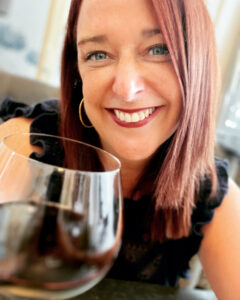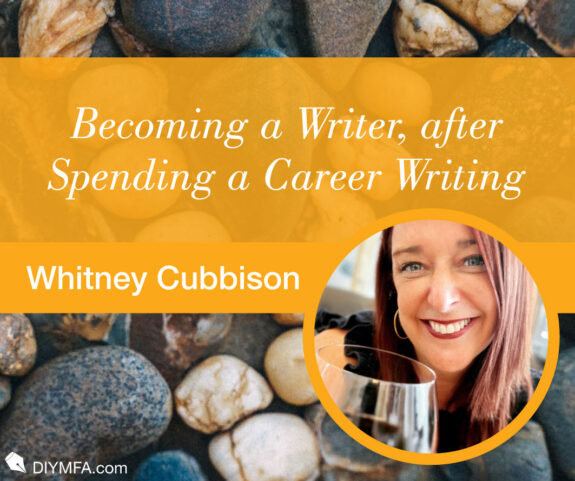In the Summer of 2022, after working in Communications & PR for 22 years, I left my writing job to become a writer. My Comms work was all in technology, 16 years of which I worked at Microsoft in a wide range of roles spanning corporate, product, issues, and executive communications. Over those years, I traveled the world, writing innumerable corporate narratives, press releases, blog posts, social media copy, and executive speeches.
The goal in technology comms is ultimately to sell product — often by synthesizing the complex into something that anyone can understand in two minutes, two soundbites, or less. That intentionally honed professional skillset put me on a path to disaster with my first novel.
Meanwhile in my personal life… more disaster
I moved to Paris with Microsoft in 2009, and while I wasn’t writing, I was trying very unsuccessfully to date in this, the *allegedly* most romantic city on Earth. Suffice it to say, my early experiences in dating were so bad that upon sharing my stories casually over glasses (OK… bottles) of wine with friends, I repeatedly heard, “This is insane. You must write a book!”
So, one day about five years ago, on a plane home from yet another business trip, I decided to listen to them. The first words of what would become my romcom novel, Will There Be Wine?, were committed to (digital) paper at 40,000 feet.
I continued to tinker away at the manuscript, mostly on weekends and vacations, often not touching it for months when work (or more horrifying dates) took priority. It took me three years to finish the first draft, at which time I proudly shared it with a small group of friends. Their mildly encouraging feedback led me to pluckily research “steps to publish a novel.” I didn’t need to worry about becoming a writer, after all, I’d been writing my whole career, so I was sure I had a good product.
Professional help
The first step that the Interwebs suggested, of course, was to get feedback from a professional book editor for a variety of editing possibilities — developmental, structural, copy, etc. After researching all the options, none of which I initially understood, I hired a structural editor.
When I sent the manuscript to her, the story was organized basically as one chapter per guy. For the “more significant” characters, there was some flashback and/or flashforward in the chapter, and her (now obvious) feedback was that those flashes made the timeline of the book impossible to follow. She strongly advised me to develop those stories into a more linear narrative, allowing the reader to “get excited” when a certain guy would return.
So, I pulled apart the novel, added about 30,000 words, adjusted timelines, and put it all back together again. That process took me another year, but when draft two was complete, I was sure I was ready to go!
I was also sure it was time to leave Microsoft. The pandemic, quickly followed by the loss of my dad, had completely emptied my tanks. I’d lost the joy I once felt in the work I was doing, and I knew I had to go find it again. I had a sneaking suspicion it was hidden somewhere in the pages of my unfinished novel. I took the leap.
Extreme generosity
Pitching agents was my next step. Initial interest from five led to no offers, however, so I decided to go indie and hired another freelance editor for a copy edit. I thought draft 2 just needed just a bit of polish, but when she missed the deadline, annoyed-me emailed her to ask where my book was.
Her response was infinitely more generous than I could have dreamed. She told me that she needed a few more days because she loved my story so much, she’d decided to do a partial line edit. She didn’t want to miss an opportunity to make it great, she said. There would be no extra charge.
The manuscript came back a few days later with about a third of the book line edited. It was in reading her comments that I learned how to write a novel. They included:
- You can’t have more than 6 lines of dialogue in Word. People’s attention spans aren’t that long. Break this paragraph up by adding in gestures, facial expressions, descriptions of the room, etc.
- You can’t just say “she learned XYZ.” Write the conversation where she learns it, so the reader learns it with her and experiences the emotions at the same time. (Classic “show, don’t tell.)
- Sometimes your narrator seems to know the future. Sometimes she doesn’t. Pick one.
- Use contractions in dialogue. It’s more realistic to how real people speak.
- Add inner monologue. What is she thinking in this moment?
- Add details about this restaurant. What made it charming?
Those were just a few of her many suggestions. To anyone who’s ever taken a creative writing class, I’m sure these all seem obvious, but for me, reading them made the scales fall from my eyes. There was more to becoming a writer than I’d thought, and I finally understood what needed to be done. Brevity, formality and summarization, which had been my writing strengths in Corporate Communications, were the enemies of the emotional connection I wanted to make with my readers.
I spent the next two months working between 6-12 hours a day, seven days a week, rewriting the majority of the book. Looking back on it now, I see that I initially wrote my chapters as efficient transactions, getting the reader from point A to B as quickly as possible in the tradition of a tech communicator.
My editor helped me write not for a transaction but for a feeling — taking the reader on an emotional journey alongside the main character. It was a joyful process. I utterly loved watching the characters roar to life on the page as I delved deeper into their world. It was in those two months that I became a writer and rediscovered the joy I’d lost. In the acknowledgements of the book, I thank my two editors for “taking what I vomited out onto the page and teaching me how to turn it into a novel.”
Writing comes in many forms
I spent many years writing for one of the biggest technology companies in the world. By any reasonable measure, my career in Corporate Communications was very successful. I often said, “I write for a living.” What I learned in leaving and in finishing my novel was that just because you know how to write, doesn’t mean that you know how to write. Writing takes many forms, each with its own critical skillset. That lesson took me years to learn, but gosh if the learning isn’t the fun part of life.
To all you aspiring writers, cheers! Keep writing. And I hope you will be as lucky as I was to work with brilliant and generous editors who illuminate your path to publication.

Whitney Cubbison is a dual American & French citizen living in Paris since 2009. She grew up in Houston, Texas and graduated from UCLA with a degree in French. She started her career in Communications working for high-tech PR agencies in San Francisco and eventually joined Microsoft where she worked for 16 years, 13 of which from the Paris office. During that time, she held various international roles that encompassed public relations, employee communications, executive speechwriting, and social media.
She earned her French citizenship in early 2022 and left Microsoft in the summer of that year to focus on completing her first novel, Will There Be Wine? The story, while fiction, is deeply inspired by Whitney’s own experiences as an ex-pat divorcée living in Paris and trying to navigate the cultural minefield of dating in a foreign country. It was released on January 16, 2023.
When she’s not writing, Whitney can be found sitting in Parisian cafés and restaurants with her friends, drinking wine or taking pictures. For more on her book, including a curated visual storytelling journey through the book’s key locations, follow her on Instagram. She can also be found on LinkedIn.







